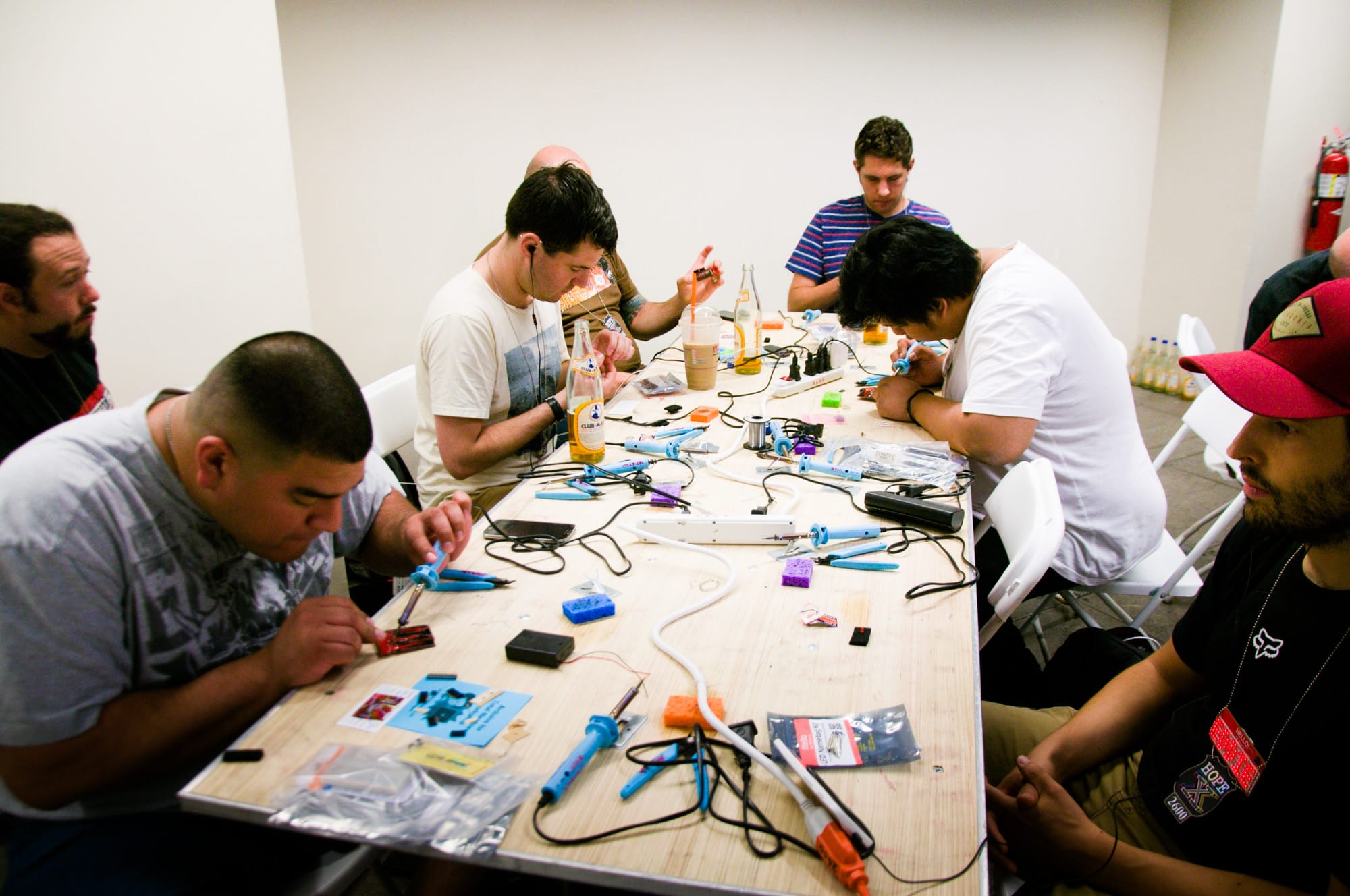Penguin Poop Helps Antarctica Stay Cool

Welcome back to the Abstract!
We begin this week with some scatalogical salvation. I dare not say more.
Then, swimming without a brain: It happens more often than you might think. Next, what was bigger as a baby than it is today? Hint: It’s still really big! And to close out, imagine the sights you’ll see with your infrared vision as you ride an elevator down to Mars.
Fighting the Climate Crisis, One Poop at a Time
The path to a more stable climate in Antarctica runs through the buttholes of penguins.
Penguin guano, the copious excrement produced by the birds, is rich in ammonia and methylamine gas. Scientists have now discovered that these guano-borne gasses stimulate particle formation that leads to clouds and aerosols which, in turn, cool temperatures in the remote region. As a consequence, guano “may represent an important climate feedback as their habitat changes,” according to a new study.
“Our observations show that penguin colonies are a large source of ammonia in coastal Antarctica, whereas ammonia originating from the Southern Ocean is, in comparison, negligible,” said researchers led by Matthew Boyer of the University of Helsinki. “Dimethylamine, likely originating from penguin guano, also participates in the initial steps of particle formation, effectively boosting particle formation rates up to 10,000 times.”
Boyer and his colleagues captured their measurements from a site near Marambio Base on the Antarctica Peninsula, in the austral summer of 2023. At times when the site was downwind of a nearby colony of 60,000 Adelie penguins, the atmospheric ammonia concentration spiked to 1,000 times higher than baseline. Moreover, the ammonia levels remained elevated for more than a month after the penguins migrated from the area.
“The penguin guano ‘fertilized’ soil, also known as ornithogenic soil, continued to be a strong source of ammonia long after they left the site,” said the team. “Our data demonstrates that there are local hotspots around the coast of Antarctica that can yield ammonia concentrations similar in magnitude to agricultural plots during summer…This suggests that coastal penguin/bird colonies could also comprise an important source of aerosol away from the coast.”
“It is already understood that widespread loss of sea ice extent threatens the habitat, food sources, and breeding behavior of most penguin species that inhabit Antarctica,” the researchers continued. “Consequently, some Antarctic penguin populations are already declining, and some species could be nearly extinct by the end of the 21st century. We provide evidence that declining penguin populations could cause a positive climate warming feedback in the summertime Antarctic atmosphere, as proposed by a modeling study of seabird emissions in the Arctic region.”
The power of penguin poop truly knows no earthly bounds. Guano, already famous as a super-fertilizer and a pillar of many ecosystems, is also creating clouds out of thin air, with macro knock-on effects. These guano hotspots act as a bulwark against a rapidly changing climate in Antarctica, which is warming twice as fast as the rest of the world. We’ll need every tool we can get to curb climate change: penguin bums, welcome aboard.
A Swim Meet for Microbes
The word “brainless” is bandied about as an insult, but the truth is that lots of successful lifeforms get around just fine without a brain. For instance, microbes can locomote through fluids—a complex action—with no centralized nervous system. Naturally, scientists were like, “what’s that all about?”
“So far, it remains unclear how decentralized decision-making in a deformable microswimmer can lead to efficient collective locomotion of its body parts,” said researchers led by Benedikt Hartl of TU Wien and Tufts University. “We thus investigate biologically motivated decentralized yet collective decision-making strategies of the swimming behavior of a generalized…swimmer.”
The upshot: Decentralized circuits regulate movements in brainless swimmers, an insight that could inspire robotic analogs for drug delivery and other functions. However, the real tip-of-the-hat goes to the concept artist for the above depiction of the team’s bead-based simulated microbe, who shall hereafter be known as Beady the Deformable Microswimmer.
Big Jupiter in Little Solar System
Jupiter is pretty dang big at this current moment. More than 1,000 Earths could fit inside the gas giant; our planet is a mere gumball on these scales. But at the dawn of our solar system 4.5 billion years ago, Jupiter was at least twice as massive as it is today, and its magnetic field was 50 times stronger, according to a new study.
“Our calculations reveal that Jupiter was 2 to 2.5 times as large as it is today, 3.8 [million years] after the formation of the first solids in the Solar System,” said authors Konstantin Batygin of the California Institute of Technology and Fred Adams of the University of Michigan. “Our findings…provide an evolutionary snapshot that pins down properties of the Jovian system at the end of the protosolar nebula’s lifetime.”
The team based their conclusions on the subtle orbital tilts of two of Jupiter’s tiny moons Amalthea and Thebe, which allowed them to reconstruct conditions in the early Jovian system. It’s nice to see Jupiter’s more offbeat moons get some attention; Europa is always hogging the spotlight. (Fun fact: lots of classic sci-fi stories are set on Amalthea, from Boris and Arkady Strugatsky’s “The Way to Amaltha” to Arthur C. Clarke’s “Jupiter Five.”)
Now That’s Infracredible
I was hooked on this new study by the second sentence, which reads: “However, the capability to detect invisible multispectral infrared light with the naked eye is highly desirable.”
Okay, let's assume that the public is out there, highly desiring infrared vision, though I would like to see some poll-testing. A team has now developed an upconversion contact-lens (UCL) that detects near-infrared light (NIR) and converts it into blue, green and red wavelengths. While this is not the kind of inborn infrared vision you’d see in sci-fi, it does expand our standard retinal retinue, with fascinating results.
“Humans wearing upconversion contact lenses (UCLs) could accurately recognize near-infrared (NIR) temporal information like Morse code and discriminate NIR pattern images,” said researchers led by Yuqian Ma of the University of Science and Technology of China. “Interestingly, both mice and humans with UCLs exhibited better discrimination of NIR light compared with visible light when their eyes were closed, owing to the penetration capability of NIR light.”
The study reminds me of the legendary scene in Battlestar Galactica where Dean Stockwell, as John Cavil, exclaims: “I don't want to be human. I want to see gamma rays, I want to hear X-rays, and I want to smell dark matter.” Maybe he just needed some upgraded contact lenses!
Hold the Door! (to Mars)
This week in space elevator news, why not set one up on the Martian moon Phobos? A new study envisions anchoring a tether to Phobos, a dinky little space potato that’s about the size of Manhattan, and extending it out some 3,700 miles, almost to the surface of Mars. Because Phobos is tidally locked to Mars (the same side always faces the planet), it might be possible to shuttle back and forth between Mars and Phobos on a tether.
“The building of such a space elevator [is] a feasible project in the not too distant future,” said author Vladimir Aslanov of the Moscow Aviation Institute. “Such a project could form the basis of many missions to explore Phobos, Mars and the space around them.”
Indeed, this is far from the first time scientists have pondered the advantages of a Phobian space elevator. Just don’t be the jerk that pushes all the buttons.
Thanks for reading! See you next week.


















